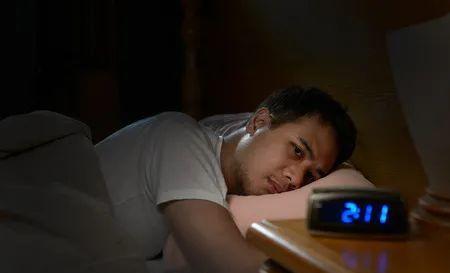▎ WuXi AppTec content team editor
When everyone sleeps, are the curtains tightly drawn and opaque, or do they turn on the night lights and fall asleep by the lights? From the perspective of pro-sleep, of course, which one can make you fall asleep faster. However, a new study in the Proceedings of the National Academy of Sciences has given people who like to sleep with the lights on as a wake-up call: Compared with the dark conditions, the presence of lights at night may have a negative impact on cardiovascular function and cause metabolic disorders in the body the next morning.
Light as a kind of external conditions that regulate the rhythm of the human body, can greatly affect the metabolism and various functions of the human body, when people receive light during the day, the sympathetic nervous system will be activated to lead to an increase in heart rate, which can ensure the high-speed operation of the heart and improve the body's alertness to the external environment.
According to the new study, the lights at night can also cause the same effect, which means that the heart cannot get the rest it deserves. "Exposing to light for just one day of sleep can impair blood sugar regulation and cardiovascular function," said Study lead author Dr. Phyllis Zee.

Image credit: 123RF
A total of 20 healthy adults were recruited for the study, with the first group of volunteers sleeping in a very weak light source (less than 3 lux) and a day in the daily room lighting state (100 lux), while the second group of volunteers slept in very weak light for two days. According to the researchers, the conditions of 100 lux are somewhat similar to bedside lamps, or only the light source of the TV set is turned on. The volunteers were monitored for sleep and tested for oral glucose tolerance two hours after waking up.
▲Different sleep conditions were arranged for different volunteers in the study (Image source: Reference[2])
As a result, after the first group of volunteers went to sleep on the second day, their sleep status began to change, such as a decrease in slow-wave sleep and RAPID eye movement sleep periods, and an increase in wakefulness time after bedtime, which meant that the quality of sleep decreased. Correspondingly, the volunteers' heart rate will be faster than the other group's, and the heart contractility will increase, which will cause the blood to circulate faster, which is exactly the pattern of the body's alertness during the day.
After waking up the next day, volunteers who slept in the light had increased insulin resistance, had higher levels of insulin in their blood, and secreted faster insulin within 30 minutes of waking up for the test than the control group. This acute insulin response has been shown to be associated with early stages of type II diabetes, meaning that individuals who sleep for a long time and receive light are at higher risk of developing diabetes.
▲ Insulin resistance is a significant effect of sleepers under stronger light (Image source: Reference[2])
This kind of light sleep is easy to produce sleep, and it seems that there is no sleep, mainly because the brain can feel the state of light presence. "Sleep is not deep in this case, the body is not resting the way it should be," Dr. Zee said, while sleeping in the light for a long time is more likely to suffer from heart disease and metabolic diseases.
Of course, some people still can't change the habit of turning on the light to sleep, and the researchers have also proposed a judgment standard to help everyone judge the strength of the light, that is, if you can see the surrounding environment clearly, it means that the light intensity is too bright for sleep. In the case of not being able to quit turning on the lights to sleep, try to choose red and orange light, which has minimal stimulation of the brain.